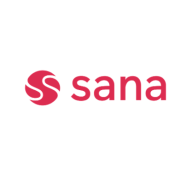

Salesforce Commerce Cloud and Sana Commerce compete in the e-commerce platform market. Sana Commerce seems to have the upper hand for ERP-driven businesses due to its seamless integration with Microsoft Dynamics and SAP.
Features: Salesforce Commerce Cloud provides scalability, AI-driven personalization, and tools for multi-channel retail operations. Sana Commerce offers deep ERP integration, enhancing business processes and minimizing manual data handling.
Room for Improvement: Salesforce Commerce Cloud could improve its complexity in deployment and reduce costs. It might also enhance integration capabilities specific to ERP systems. Sana Commerce could benefit from expanding features beyond ERP integration, offering more versatility in multi-channel operations and enhancing UI customizability.
Ease of Deployment and Customer Service: Salesforce Commerce Cloud supports flexible deployment with comprehensive resources, though it can be complex. Sana Commerce provides a straightforward deployment model that simplifies onboarding, especially for existing ERP systems. Salesforce offers robust support, while Sana is noted for tailored service during deployment.
Pricing and ROI: Salesforce Commerce Cloud generally has higher initial costs, justified by long-term ROI due to scalability and optimization. Sana Commerce offers a cost-effective setup, appealing to ERP users with streamlined operations and lower maintenance, enhancing ROI through efficiency and reduced setup costs.

Salesforce Commerce Cloud is an eCommerce platform designed to help retailers and B2B companies manage sales, leads, and opportunities, create pipelines, produce reports, and forecast. It integrates with billing systems and supports sales cycles while handling large-scale projects, automating work, and offering product customization.
With seamless upgrades, extensive customization, and multilingual support, Salesforce Commerce Cloud provides a user-friendly interface, easy signup process, and robust data analysis capabilities. Clients get frequent updates and integration with other Salesforce clouds for enhanced operational efficiency. It enables extensive personalization, smooth data integration, and streamlined deployment processes.
What are the key features of Salesforce Commerce Cloud?
What benefits should users look for in the reviews?
Salesforce Commerce Cloud is utilized by American retailers, financial institutions, insurance and banking clients, and B2B customers for customizing pricing and experiences. Solution providers use it to build omnichannel platforms, automate tests, and manage extensive projects with diverse teams. Challenges include improving user experience, platform integration, pricing for smaller businesses, and technical support. Enhancements in reporting, AI capabilities, ERP integration, and better training options are needed. Data storage limitations and marketing services also require attention.
Reviews from Real Users
Below are some reviews and helpful feedback written by PeerSpot users currently using the Salesforce Commerce Cloud solution.
A Senior Consultant at a computer software company comments, “The most valuable feature is the lead matrix that Commerce provides, which helps us to filter out the leads. It also filters out the companies that are right for us and need to target. The visualization is very good. It's not confusing. If you are doing an analysis on your Commerce, It's very easy. The filters are very useful and easy to customize. It's very easy to operate. The user-friendly interface is better when compared with other CRMs. For everything that we have used this solution for, we have had the best experience.”PeerSpot user Syed B., Salesforce Solution Architect at Systems Limited, says, "It has a customizable checkout experience, customizable homepage, everything can be customized. The stability is very, very high. SFCC is a leader in the world."
Divs C., Salesforce Solutions Architect at Kcloud Technologies, mentions, “Salesforce offers the best features and functionality which are developed and refined over many years to provide a highly customized e-commerce experience. It is mostly for clients who are more into e-commerce, so they go for the Salesforce Commerce Cloud because, the best part is, you don't have to develop everything from scratch. Salesforce Commerce Cloud has seamless upgrades. Since the platform is SaaS, Salesforce continuously rolls out many new features in the background. These are available through an administration panel and often with minimal or no technical intervention needed on the client-side.”
Joaquin A., Salesforce Programmer at Freelancer, explains, “Multi Language support means that this product will operate in English, Chinese, or whatever language is required. The translation feature is available, depending on the region, and it is quite useful for me as well as my customers. The development capabilities are very powerful, which is what my customers know and why they buy this product instead of something else. There is a good community of developers for the platform. With respect to customizability, you can do whatever you want. You can integrate with other solutions and put everything in one place.”
Sana Commerce is a SaaS-based B2B e-commerce solution that integrates seamlessly into your tech stack using agile cloud software to enable a stellar e-commerce web store with guaranteed uptime and minimal maintenance.
How? By making your SAP or Microsoft Dynamics ERP and e-commerce work as one. SCC harnesses the power of your ERP to create an e-commerce platform that automates tedious business processes and delights consumers with easy-to-use functionality. It eliminates the system silos, unnecessary complexities and compromises caused by mainstream e-commerce solutions. SCC drives growth and future proofs your business model by facilitating a smooth omnichannel order process without hurdles.
Sana Commerce is a certified SAP and Microsoft Gold partner, backed by a strong global partner network and recognized by leading industry experts.
Want to know if we can meet your B2B needs? Contact us for a personalized demo.
We monitor all eCommerce Platforms reviews to prevent fraudulent reviews and keep review quality high. We do not post reviews by company employees or direct competitors. We validate each review for authenticity via cross-reference with LinkedIn, and personal follow-up with the reviewer when necessary.